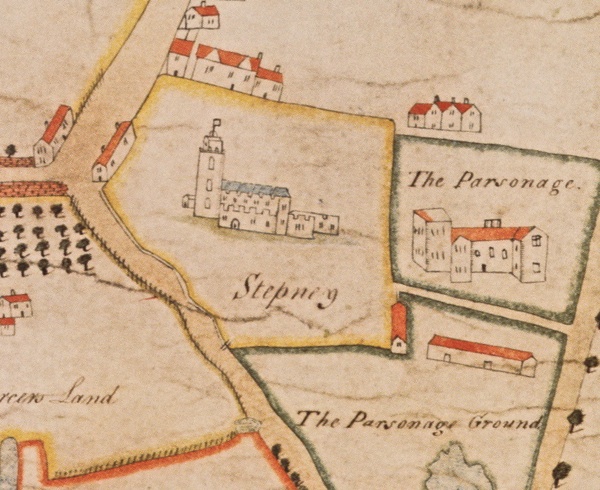In an earlier post I wrote about James Robb, born 1827, who was executed for murder in 1849. I concluded, with some help from Karen and John (see comments following that post), that this James was the son of George Robb, born 1804, who in turn was the son of another James Robb, born 1772, the brother of my 3 x great grandfather, Charles Edward Stuart Robb.
I’ve already posted one contemporary account of the murder and trial. Now, thanks to John Brechin (who is descended from another of George’s sons, Alexander Robb), I’m able to reproduce a contemporary account of James Robb’s execution, taken from the Aberdeen Journal of Wednesday 2nd October 1849:
EXECUTION OF JAMES ROBB
James Robb, from Auchterless, sentenced to death, on the charge of rape and murder, at the Court of Justiciary recently held in this city, met his doom at the usual place of execution, yesterday morning.
The unfortunate man, we are very glad to say, since the passing of his sentence, devoted himself very steadily to Scripture reading and devotion – duties that, during his imprisonment, up to that period, he had shewn but little inclination to attend to. His conduct was in every respect satisfactory to his spiritual instructors; and latterly he exhibited considerable composure, and resignation to his fate. During the whole time since his condemnation, he has been daily waited upon by Rev. Mr Strahan, the late and still officiating chaplain of the prison, as well as by the Rev. Messrs Cheyne and Wagstaff of the Scottish Episcopal Church, in which communion he had been brought up. These gentlemen have been unremitting in their christian offices, and in so far as they could judge, the prisoner’s mind seemed to have been brought to a composed and satisfactory state.
On Saturday last, one of his brothers, and on the day before his execution, his father, saw him for the last time. During Monday night he slept about an hour, and spent the rest of the time in devotional exercises. About ten minutes past eight yesterday morning, he was pinioned and delivered over to the Magistrates. He looked exceedingly pale, and was evidently suffering extreme mental agony. On the Lord Provost asking him if he had anything to communicate, he stated that he had; and Mr Strahan accordingly read the following statement of the circumstances attending the commission of the crime for which he has suffered: –
“I hereby confess that I entered the house of Mary Smith, when I was under the influence of drink, with the intention of ravishing her; that, while struggling with her, in order to accomplish my purpose, she coughed twice or thrice, and then ceased to breathe; and I hereby declare that the crime of rape was not committed.
“This confession, made and written, in the presence of Mr Strahan, this 10th day of October, 1849.
“Lust, drink, and Sabbath-breaking have brought me to a shameful and untimely death. God grant that others may take warning by my sad example.
“I cast myself entirely on the mercy of God, through Christ, whose blood cleanseth from all sin.
“God pity,pardon,sanctify and save me, for Christ’s sake – Amen, and Amen.
JAMES ROBB.”
He was then conducted to the scaffold, attended by the Rev. Gentlemen above mentioned. The rope was immediately adjusted, and before he had been two minutes on the scaffold he was launched into eternity, and apparently died without a struggle. The executioner was Calcraft, from London. The concourse of spectators was very numerous, chiefly of the lower class; and, as is always to be remarked, comprised a vast number of females, hardly on the verge of womanhood.
It is much to be wondered at, that such distressing scenes can afford satisfaction to anyone; and the fact of their attracting so many in whose minds they might be expected to excite only pain and horror, is an evidence of a state of feeling among a portion of the rising generation, which is far from creditable to them.
This is a graphic account and, leaving aside its family interest, is fascinating for what it tells us about the moral, religious and social attitudes of the time. The language of the confession, with its repudiation of ‘lust, drink and Sabbath-breaking’ is pure Church of Scotland Presbyterianism, and probably owed more to Rev. Strahan than to the Episcopalian James Robb.
In spite of the horror of Robb’s crime, the account of his last days is quite moving: imagine those last meetings with his brother (was it Alexander?) and his father. John Brechin has also sent me an account of a ploughing match, held on 21st December in that same year, on the farm of Mains of Rothmaise, which includes the following:
After the labours of the field were over, the farmers, the judges, and a number of friends, sat down to a capital dinner, prepared by Mr George Robb, Fisherford.
This would seem to indicate that, despite recent events, George was still a figure of some standing in the local community. One census record gives his occupation as ‘innkeeper’, so maybe this, rather than any great wealth or generosity, accounts for his provision of these refreshments.

Pingback: More on Rev. William Robb, poet « Martin Robb’s Family History Blog
Pingback: Evidence of Episcopalianism « Martin Robb’s Family History Blog
Pingback: Rev William Robb: Episcopalian convert? « Martin Robb’s Family History Blog
Pingback: James Robb, murderer: a view from the judge « Martin Robb’s Family History Blog
Pingback: James Robb, murderer: the law officer’s story « Martin Robb’s Family History Blog